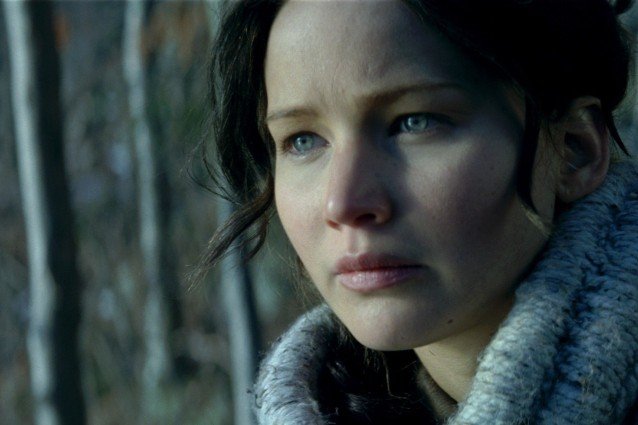
Warning: The following contains major spoilers about the ending of Catching Fire.
We fans of American cinema are no strangers to the dreaded cliffhanger. Whether we are most ardently affixed to YA franchises that suggest more adventures yet to come next time around, or the comic book films that cap their features with mid-credit scenes that introduce entirely new narrative branches into the canon, we know what it’s like to be teased. But in the vast majority of these cases, we’re not left entirely without satisfaction. Movies from the Marvel Universe, the Tolkien collection, or the Harry Potter world will whet appetites for future movies, but will still wrap up their individual tales in self-contained stories. This is a task — no, a requirement of honest storytelling — that The Hunger Games: Catching Fire seems to have overlooked.
Following a very strong body of action and surprisingly substantial emotionality, Catching Fire closes its final scene mid-conversation, revealing to Katniss and the audience that she is at the center of a vast conspiracy to rise up and take down the Capitol — in on the antic are her mentor Haymitch Abernathy, her ally/rival Finnick Odair, and the Games master Plutarch Heavensbee, among others (a number of unspecified tributes included). The final minutes of the movie see Katniss injured and knocked unconscious in her electric defiance of the institution of the Hunger Games, picked up by helicopter, and revived in a rehabilitation center far outside of the arena’s walls, only to be informed of the coup brewing around her.
In book form, the Catching Fire story closes on the down note of Katniss reflecting on the treachery that has overtaken her home, and gearing up for her mission to take on the Capitol. But in the movie, there is no reflection. There is no gearing. There’s an outburst of expositional information, following by a wordless gasp by Jennifer Lawrence and an abrupt cut to black. It wasn’t until the credits began to roll that I even realized the movie was over. It certainly didn’t feel over.
Even when a piece of a series, a movie is a standalone work of art — much like a novel in an anthology. There should be an independent beginning and an independent end. You can set up for future stories all you want, but ideas and themes must come to a close (for better or worse) with the last fade to black, or else you’ve got yourself an unfinished product.
It speaks to the quality of the rest of Catching Fire that the movie doesn’t leave us feeling entirely unsatisfied. For the most part, Francis Lawrence’s first turn with the Hunger Games series delivers a lot of good will to fans and newcomers. But his (or the studio’s) decision to cap the feature with a cliffhanger so blatant that it feels like it warrants a “Next week, on Lost…” isn’t necessary to ensure that all those fans and newcomers will be back for more. We were already planning on seeing Mockingjay. You don’t need to dangle the conclusion of this movie to make the beginning of the next one appealing.
But more worrisome than its affront to a single movie’s story structure is what the Catching Fire ending indicates about the form we might find our movies taking. We’re already tacking on teasers to every superhero flick in theaters; now are we going to be upping the ante with compulsory follow-up viewing if we want complete stories? If we want episodic narratives, we have television — a different kind of art form that is far better suited for the cliffhanger game (you don’t have to wait a year to find out what happens next, just a week — maybe a summer — and you’re guaranteed a ticket on opening night so long as you pay your cable bill). The experience of designating a night out for a few hours at the theater is, inherently, just that. An experience. Something you devote to and engage with, hoping for a complete journey. While there is no reason that one journey cannot propose our entry into another, that first one really should give you the very basic tenets of what you signed up for: a story.


